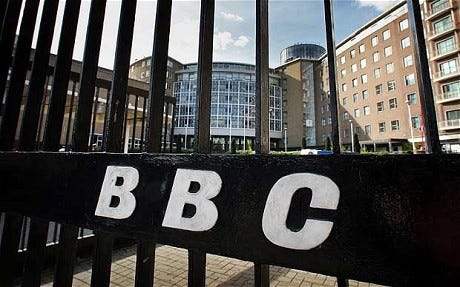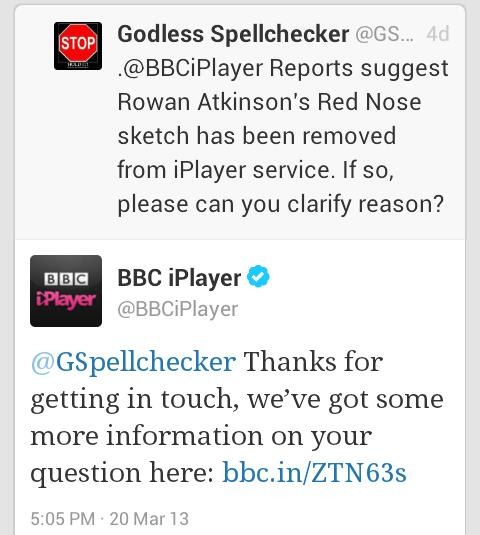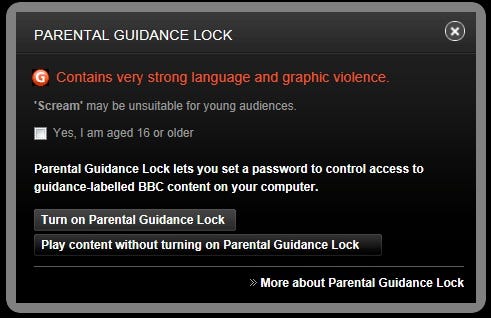Is Religion Exempt From Satire According To The BBC? Clarification and Your Action Required

Red Nose Day (Comic Relief) is a biennial UK telethon event, which aims to raise money for charity. The hook is on the promise of entertainment in the form of famous faces ‘doing something funny for money’. It is hoped that this will attract viewers, and hopefully donations along with it. (Our team raised over 10k! Just saying) Over the years, some incredibly talented, hilarious performers and Lenny Henry have appeared during the TV event to participate in various skits, some live, some pre-recorded, some funny, some cringe-worthy. It doesn’t matter, it’s all for a good cause. This year, Rowan Atkinson of Blackadder and Mr. Bean notoriety gave his time to appear via a pre-recorded sketch. In the sketch, he appears in character (tongue firmly in cheek) as the 'New Archbishop of Canterbury'. Rather than provide an exhaustive description of the, in my view, rather tame contents, you can watch it in full below (until the inevitable swooping of BBC Ninjas):
[youtube http://www.youtube.com/watch?v=eVen3LudUN0&w=560&h=315]
After the initial live broadcast over 2,000 complaints were received, only a quarter of which, were related to the religious content. This prompted the BBC to issue an apology in conjunction with complete removal of the 'offending' skit from their online, on demand service, iPlayer. I pressed the official iPlayer Twitter account for more details regarding their conclusion that the content was so inappropriate as to merit complete removal from its services. They were kind enough to direct me to a pre-existing statement, an excerpt of which, is below:
It was clear from this feedback that the Rowan Atkinson sketch was problematic for a number of different reasons, with many viewers noting the subject matter, the language used and its placing early in the evening. It is clear to us that this sketch did not translate as we had hoped and as a direct result of viewer feedback we took a swift decision to remove this from BBC iPlayer.
I requested further clarification from the BBC on some key points, but as of yet, I have not received a response.

The lack of clarity and response from the BBC is why I felt the issue was worth pursuing here. Firstly, the statement from the BBC raises some entirely legitimate concerns regarding the colourful, albeit mild language used in the broadcast. UK television implements a 9pm watershed, where any breaches are dealt with by Ofcom. This means that any content deemed to contain overtly adult themes or explicit language is unsuitable to be broadcast before 9pm. With this in mind, and the fact that the skit was broadcast pre-watershed, I sympathise with parents who did not expect to have to explain to their children what the nice Mr. Bean meant by “shag”.

This issue becomes irrelevant however, when framed in the context of the iPlayer service. A vast amount of post-watershed material is available on its service at any given hour of the day. The concerns over inappropriate language are easily mitigated by the implementation of content warnings and age verification protocols, as is a standard feature of this service already. This can only really imply that the BBC took action based on the underwhelming numbers (just a quarter of the 2,200 complaints received) who took offense solely due to the religious themes or ‘subject matter’ of the ‘offending’ item, namely satire and mild mockery at the expense of the Church of England. And by mild, I mean tepid and innocuous. I dread to think of the storm I could create were someone to grant me 5 minutes of airtime on a national broadcaster. I would therefore be keen to hear from the BBC on which other ideologies they feel are exempt from playful satire or mockery and how they go about deciding this for the rest of us. Or why a small humourless minority get to dictate to the larger licence fee paying public what they may or may not view on its services. The majority of people were not offended it seems, and those that had issues concerning language could have had their concerns acknowledged by a use of already established methods outlined above. I would hazard a guess that the majority of people are also capable of reading a content warning. I would very much like clarification, feedback or constructive dialogue with anyone who represents the broadcaster. I would therefore suggest, if you feel the same, you may consider choosing to put this into words via the BBC complaints page. I believe if enough of us put into words (as I know, many already have) how disappointed we are that religion appears to have been granted special privileges by the broadcaster, and that these, in my view, unsubstantiated objections, get to decide what is deemed appropriate for the larger viewing public, then they may respond. Also, if you wish, feel free to paste your complaint into the comments section of this blog post, or any other thoughts you may have on this topic. Tweeting this post out to others and official BBC Twitter accounts may also be helpful. I think we deserve clarification. GS


